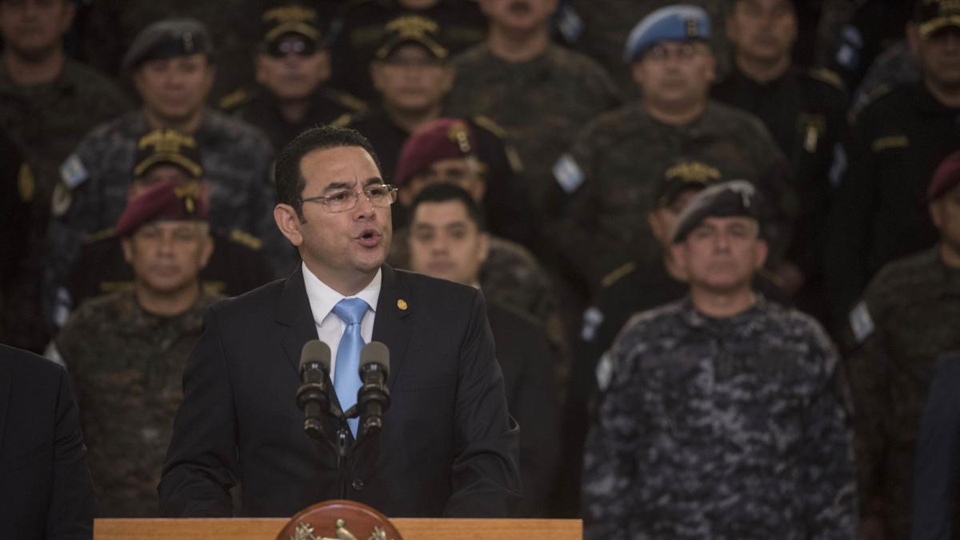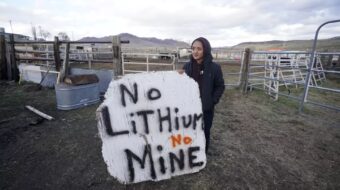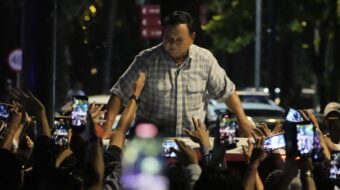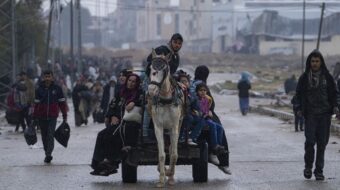
On Friday August 31, Guatemalan President Jimmy Morales announced that he is terminating the country’s cooperative relationship with a United Nations-sponsored body that has been working with Guatemalan prosecutors to root out corruption in this impoverished country of 17 million.
The announcement was made in the presence of a large number of uniformed military officers. As Guatemala has been subjected to one bloody military dictatorship after another almost since its founding, and as some of the corruption investigations concern retired military, the message was clear.
The U.N. agency whose work in Guatemala is being canceled by Morales is the International Commission Against Impunity in Guatemala, or CICIG. It was set up in December 2006 to deal, not primarily with corruption, but with often violent cases of abuses of power by the country’s government and over-powerful military forces.
Guatemala went through a period of very bloody civil war after the U.S. instigated a 1954 coup that overthrew moderately leftist president Jacobo Arbenz in 1954. More than 200,000 people died, most of them Mayan indigenous civilians killed by the army or right-wing paramilitaries. The Civil War supposedly ended in 1996, but it has been extremely difficult to hold the worst rights abusers accountable. Military officers who bloodied their hands in that war, especially during the presidency of General Efrain Rios Montt are still a powerful group in the Guatemalan body politic. And the murders slowed down but never stopped.
In 1998 a Roman Catholic Bishop, Juan José Gerardi, who headed a group officially charged with investigating crimes committed during the civil war, was himself brutally murdered. Eventually, some lower level officers were tried, convicted and imprisoned for the Gerardi murder, but the people who headed the conspiracy have never been identified, let alone punished. It was this sort of thing that eventually made possible the creation of the CICIG.
Retired military officers whose own hands were bloodied have had reason to fear that the CICIG’s work, in tandem with a series of courageous women, Claudia Paz y Paz and Thelma Aldana, who have held the post of Attorney General, would lead to their being called to account also. The prosecution and imprisonment of President Morales’ predecessor, General Otto Pérez Molina, which resulted from the corruption investigations of the CICG and former Attorney General Aldana, may have heightened those fears.
In the 2015 presidential elections, Pérez Molina was ousted from contention and arrested and imprisoned, after mass protests, because of the corruption allegations in a case called La Linea (“the Line”). Jimmy Morales, a raunchy television comedian and Evangelical Christian, was elected by a 67.44 percent majority in the second round. But the political party whose candidate Morales was, the National Convergence Front-Nation, was organized by retired army officers, some of whom appear to be implicated in the crimes of the civil war period, and thus to have a vested interest in quashing the CICIG investigations.
In fact, the current set of investigations have led to the prosecution of President Morales’ brother and son, and have turned up very troubling information on the National Convergence Front’s 2015 campaign financing practices. In that election, National Convergence had managed to win the election with Morales as their candidate while spending a ridiculously small amount of money in the process. There are strong indications that the actual funding of the Morales campaign was “under the table”, unreported to electoral authorities and therefore illegal. The CICIG continued its investigations, looking into campaign funding from narcotics cartel sources and getting closer and closer to Morales himself. Morales tried, last year, to expel CICIG head Ivan Velazquez from the country, but failed. But now the CICIG’s two-year renewable term of existence will be up a year from now, and Morales has decided it and its non-Guatemalan staff must be out of the country, bag and baggage, by the September 2019.
The announcement of the cancellation of the CICIG led to widespread condemnation inside Guatemala and outside, and large scale street protests in Guatemala City.
In his speech announcing the expulsion of the CICIG, Morales threw in a line about marriage in Guatemala being between a man and a woman. That is an appeal to the right- wing Evangelical Christian sector of his social base: The Guatemalan Congress is debating a harshly repressive “Gender Ideology” law aimed at stopping same-sex marriage and punishing women who have abortions or miscarriages (yes, you read that right) as well as anyone who helps them.
As Guatemala slides toward more right-wing, authoritarian government practices, the question of the Trump administration’s attitude arises. In recent years, many of the people, including families and unaccompanied minors, who have turned up at the U.S.-Mexico border asking for asylum have been from Guatemala, often from indigenous communities. The Trump administration continues to persecute them, but continued corruption and repression in Guatemala will probably increase the flow.
Meanwhile, the administration also considers Guatemala a valuable ally: When, earlier this year, Trump decided to move the U.S. embassy in Israel to move from Tel Aviv to Jerusalem, Guatemala and neighboring Honduras quickly followed suit, pleasing the White House no end. Although the United States has been a major funder of the CICIG, there is speculation that Morales made his move to kick the agency out of the country with full knowledge that the United States would back the move. After all, worry about corruption investigations are one thing that the two presidents surely have in common.












Comments